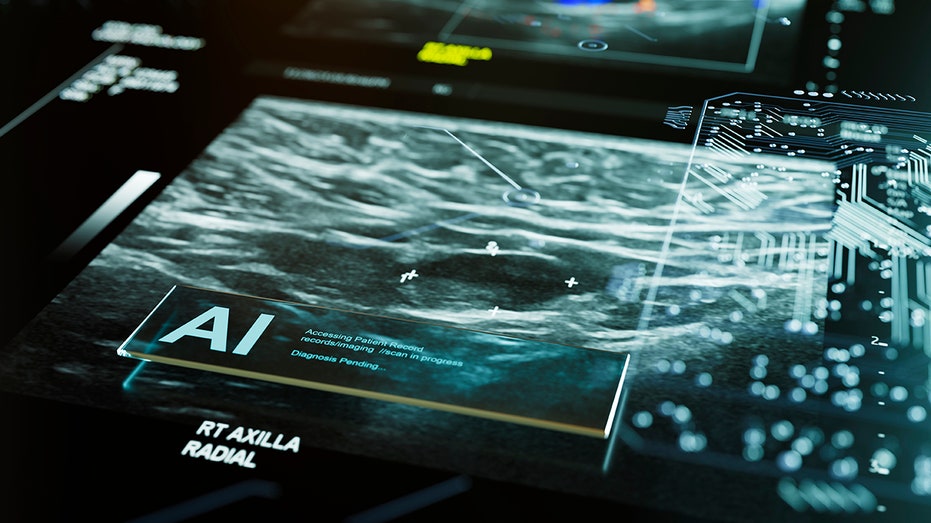Fox News AI Newsletter Highlights: FDA Approves Revolutionary Cancer-Fighting Technology
Stay ahead with Fox News' AI Newsletter, your go-to source for the latest developments in cutting-edge artificial intelligence technology.

The field of artificial intelligence continues to transform daily life, as seen in a series of major developments this week. In a landmark decision, the U.S. Food and Drug Administration has approved the first AI-powered tool designed to predict a patient's breast cancer risk. This new technology is expected to significantly enhance early detection efforts and streamline patient screenings, potentially saving countless lives. Experts highlight that AI-driven insights could help physicians tailor preventive strategies and reduce the burden on radiologists.
Meanwhile, the ongoing debate over copyright in the age of AI intensified when OpenAI's CEO Sam Altman announced plans to appeal a recent court ruling stemming from The New York Times' lawsuit. Altman described the need for what he called "AI privilege," advocating for clearer legal frameworks that balance the rights of content creators with the progression of AI technologies. This case could serve as a precedent impacting tech giants and publishers worldwide, as generative AI models increasingly rely on vast swathes of digital text for training.
On the public safety front, Flock Safety unveiled its latest product, Flock Nova. The device aims to bolster crime prevention by bridging gaps in data sharing for law enforcement agencies, particularly those dealing with human trafficking. The emphasis is on providing real-time information across jurisdictions, allowing officers to act swiftly and more effectively than ever before.
The healthcare sector faces an impending crisis as experts predict a shortage of 4.5 million nurses globally by 2030. Burnout remains a key contributor to this shortfall. In response, hospitals in Taiwan are pioneering the integration of AI-assisted robots to relieve workload pressure on nursing staff. These robotic aides perform routine tasks, freeing up medical professionals to focus on more complex care and, ultimately, aiming to preserve high standards in patient health outcomes.
Tech investment continues at a rapid pace, with Amazon announcing a $10 billion commitment to build new data centers in North Carolina. The initiative seeks to expand the company’s artificial intelligence and cloud computing infrastructure, solidifying the region’s status as a burgeoning innovation hub. Such massive investments are expected to catalyze job creation and spur further technological breakthroughs in both AI research and practical applications.
For investors eager to tap into AI's potential, a new exchange-traded fund is launching on Wall Street. Curated by one of the market’s top analysts, the ETF will focus on 30 prominent companies poised to benefit from the next wave of AI advancements. Industry watchers see this as an opportunity for broader participation in the AI economy, with increased diversification mitigating risks inherent to emerging technologies.
The creative world is also grappling with the intersection of art and AI. Singer-songwriter Kesha recently changed the cover art for her single "Delusional" after fans criticized the initial use of an AI-generated image. The incident reignited discussions about authenticity in music marketing and the complex relationship between artists, their audiences, and emerging technologies. This backlash underscores the sensitivity surrounding creative ownership and the role of human touch in art.
Diplomatic relations saw a technological boost as President Donald Trump’s visit to the United Arab Emirates highlighted stronger UAE–U.S. partnerships centered on advanced technology and AI. Both nations are signaling a shift from traditional oil economies toward innovation-driven growth, promising new opportunities and collaborative ventures in artificial intelligence and beyond.
Finally, concern over the behavior of advanced robots resurfaced this week following viral footage of a humanoid robot malfunctioning during a test. The video, which showed the Unitree H1 robot unexpectedly thrashing its limbs near two technicians, has stirred debate over the safety protocols and ethical boundaries required as robots become more autonomous and integrated into society.
As artificial intelligence becomes increasingly woven into the fabric of modern life, these stories highlight both the remarkable promise and the profound challenges that accompany its rise. The coming months will likely see more innovations—and more questions—around safety, ethics, ownership, and opportunity in a rapidly evolving technological landscape.




